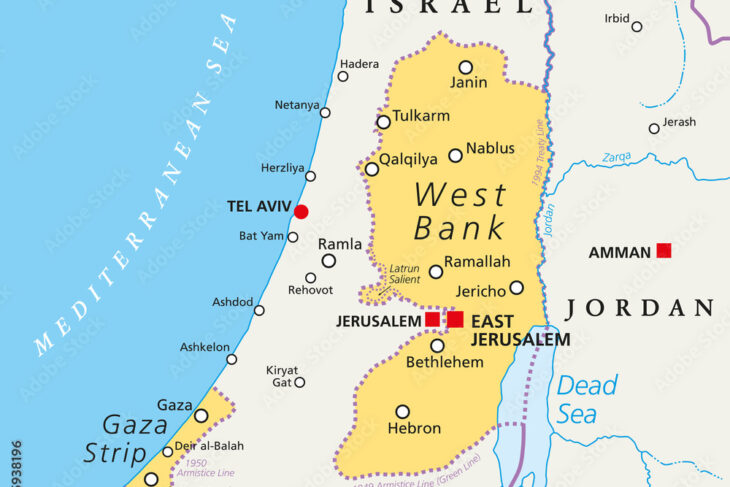
Good Things Come In Small Packages
We often coin phrases to help us to feel better about ourselves. So expressions such as “Big is beautiful” and “Good things come in small packages” resonate for us, depending on where we are in the spectrum.
Jamaica is a small island that prides itself in being distinctive in so many ways. The phrase “We likkle but we tallawah” is now synonymous with Jamaica. However, while that fact is indisputable, being a small island also subjects us to certain vulnerabilities that require special attention. This had the spotlight during the recent Science Summit at the United Nations General Assembly (UNGA 77) at which, for the first time, food security took centerstage.
Data Gap
Achieving food security means that we have to fulfill a complex matrix of requirements, and as such, data and relevant information are crucial to utilize scarce resources in a targeted and strategic manner. Small Island Developing States (SIDS) in this hemisphere fall within the Latin American and Caribbean region (aka LAC), typified for its vibrant culture and rich biodiversity.
Demographics, geography, policies, and socio-economic conditions are, however, quite diverse, and as such data representing LAC often paint the big picture, leaving some key areas of vulnerability inherent in the SIDS hidden and un-addressed. A case in point is the current prevalence of undernourishment in the Caribbean being twice that of Latin America and the Caribbean en block. This would be missed had we not disaggregated the data. So, the Caribbean countries need to ensure robust data are collected, analyzed and reported in order to design appropriate interventions.
Status quo
The Food and Agriculture Organization (FAO) Food Insecurity Map illustrates that food insecurity in Jamaica is quite high at 40%. As a matter of fact, the prevalence of moderate or severe food insecurity in the total population between 2019 and 2021 increased to just above 50% over the previous period when it was 45.8% (2017 – 2019). Also of concern is the fact that food insecurity is consistently worse among women who are typically single mothers and caregivers in the household.
A cursory glance at supermarket shelves and even local community markets will showcase our appetite for, and dependency on imported fruits and vegetables and food products.
Assuming the data are correct, it is alarming that in 2021 agricultural food and products imported from the United States to Jamaica grew by 23% over the previous year, even though the national debt of Jamaica amounted to approximately 91.5% of GDP. No doubt increased prices impacted the data, but through any lens, this is unsustainable. The Government of Jamaica has been implementing a suite of activities in response and the food and nutrition policy is an excellent start.
Other initiatives such as the establishment of agroparks, improving the use of technology and encouraging youth to use available land for farming are encouraging. The private sector is also playing an invaluable role, and the availability of funds designed to support innovation and agri-preneurial activities is to be commended.
All hands on deck
Assuring food and nutrition security requires all hands on deck. Alarming trends such as the high incidence of non-communicable diseases dictate that such a collaboration must be translated to action, in terms of crops cultivated and consumed. The tried and proven campaign “Grow what you eat and eat what you grow” is slowly beginning to resonate with our local consumers (no doubt aided by high food prices post-COVID). Such an initiative is one step in keeping with the undertaking by CARICOM to reduce the food bill in member states by 25% by 2025. To do this, CARICOM has agreed that countries need to spend a minimum of 7.5% of their budget on agriculture. Guyana currently exceeds 8%. It would be interesting to know how much Jamaica currently spends.
External forces such as increased incidence of floods — as is currently evident in our breadbasket parishes; a pandemic; war, supply chain disruptions… happening all at the same time; exacerbate the pressure on the extremely limited resources of small developing countries such as Jamaica. Added to this, development funds have become extremely difficult to come by. At times like these it seems that we have little choice but to get back to basics.
Getting back to basics
Small islands in the Caribbean have had a rich tradition of backyard and school gardening. However, with urbanization (in action and thought), these practices petered out over the last few decades. The road to food self-sufficiency would benefit from involving schools and local small farmers. For example, they could be invaluable for cultivating crops needed for the school feeding programme. Incentivizing school gardens and incorporating basic concepts in lesson plans for pre-schoolers would also provide additional motivation. The data have shown that obesity is on the rise… even at the kindergarten level. A fundamental shift in consumption of high sugar drinks and high salt and fat snacks can be introduced at this level. Starting with the young ones and inculcating an appetite for local fruits and vegetables, through cultivating and harvesting what they have grown could lay the foundation for healthier eating habits as they grow up.
Picture this: driving change through our kindergarten children! Parents inevitably capitulate to the persistent desires of their young ones, so it may just be possible to use these “small packages” to influence parents — many of whom are single mothers — and ultimately to communities to catalyze change in eating habits of adolescents and adults. This is no easy task, as we are competing with attractively packaged, although often with “empty calories”, relatively cheap products from the northern developed states.
Collaboration
To tackle this food insecurity challenge requires collaboration, technical assistance and cooperation — locally, regionally and internationally. At the international level, organizations such as the FAO and the Inter-American Institute for Cooperation on Agriculture (IICA) have initiatives that leverage the strengths resident in specific countries for the benefit other member states including Small Islands of the Caribbean. A case in point is the Biofortification of root crops, rice and beans to address inherent micronutrient deficiencies in the Caribbean. This simple intervention has the power to impact our nutrition security since these are “staples” in most of our Caribbean countries.
Another example of walking the talk is the commendable partnership between Guyana and Barbados, which will facilitate the sharing (by Guyana) of pest resistant planting material for important crops. This should be keenly watched for lessons that aim to result in win-win food security outcomes. Jamaica’s Food and Nutrition Security Policy already fosters collaboration between the ministries of agriculture and health.
Other local players must include the ministries of education, finance, industry and commerce, as well as the private sector. Among the usual professional skill sets needed, Food Technology, Human Nutrition, Communication, Information Technology and Management, Sociology should also be included to ensure that as we ‘grow what we eat and eat what we grow’, there will be a paradigm shift towards sustainable food and nutrition security in generations to come.



